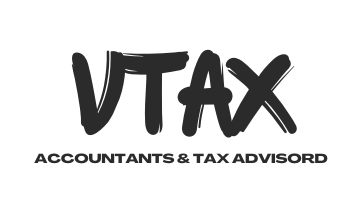What is a Sole Trader?
A sole trader is the legal status used when you run a business as an individual (i.e. not through a Ltd Company). It means that there is no legal distinction between you as the business owner and the business as an entity.
As a sole trader there is no legal obligation to run a separate business bank account (although we highly recommend that you do).
When you run your business, you pay your tax based on the net profit that your business makes. Drawings that you take from the business are not taxed like they would be if you paid a salary. Likewise, your drawings are not a tax deductible expense!
1
The Advantages of a Sole Trader
Being a sole trader is one of the simplest ways to start running your own business. You just register with HMRC, decide on your name and off you go!
You won’t have to deal with any of the additional admin or accounts and tax returns that a Ltd Company has to deal with – such as submitting company accounts to Companies House, doing a confirmation statement or appointing directors.
You’ll still need to keep records of all of your income and expenses in an HMRC approved format. We recommend doing this digitally ready for when Making Tax Digital goes live for self employed traders in 2024. But with a service like ours, we can take care of all of that for you.
Being a self employed offers you a little more privacy too. A Ltd Company has to submit their accounts and details of the directors of the company to Companies House, where anyone can look them up. But a sole trader only has to submit them to HMRC and no one but you and HMRC (and your Accountant!) will see them.
The Disadvantages of a Sole Trader
One of the main disadvantages is the risk to you personally in the form of unlimited liability.
In the eyes of the law, there is absolutely no difference between you and your business. So if you get in to debt, or somebody takes legal action against you, it is you personally who is liable rather than a legally separate company.
Depending on how much profit you make, operating as a sole trader may not be the most tax efficient set up for your business; so it’s worth getting an Accountant to look at whether it really is the best option for you.
Some companies may only want to offer contracts to Limited Companies – so if you are chasing work or undertaking a tender, check whether they would allow you to do so as a sole trader.
1
Setting up as a Sole Trader
1

You should look at setting up as a sole trader if you are self-employed or plan to become self-employed in the near future. The UK Government revealed that 76% of British small businesses were sole traders. A sole trader is someone who works for themselves.
When you register as a sole trader, you agree to accept personal financial risk. As your business is not a separate legal entity, you would be personally liable for any debts or legal action against your work.
Deciding whether to set up as a limited company or not is a key decision for all business owners. There are a number of key differences, including tax advantages when changing your business status from a sole trader to a limited company. You can find further guidance on limited companies here.
If you do decide that being a sole trader is right for you, consider the tax implications when you register as self-employed. Depending on your annual income, you may also be required to become VAT-registered.
As with any business, when you work as a sole trader, you should keep detailed records of all your income and expenses. Basic bookkeeping software can make it easy to log invoices, receipts and expenses. This makes it easier when the time comes to submit your self-assessment tax return to HM Revenue and Customs (HMRC), which is a legal requirement for all sole traders.
If you are still figuring out how to set up as a sole trader and you are taking time to define your business proposition, we can help you to finalise a detailed business plan. This acts as the roadmap for your start-up business and can provide clarity and certainty for sole traders seeking business finance from banks or alternative finance lenders.
The Deadline For Sole Traders
1
31st January
Deadline for submission of tax return for previous year.
Deadline for balance of tax due for previous year and first payment on account for current tax year.
31st July
Deadline for payment of second payment on account for current tax year.
It’s important to consider the impact these payments on accounts can have on cashflow. After your first year as a sole trader it is possible that you may be required to pay 150% of your tax for the first year by the following 31st January and a further 50% by the following 31st July.



